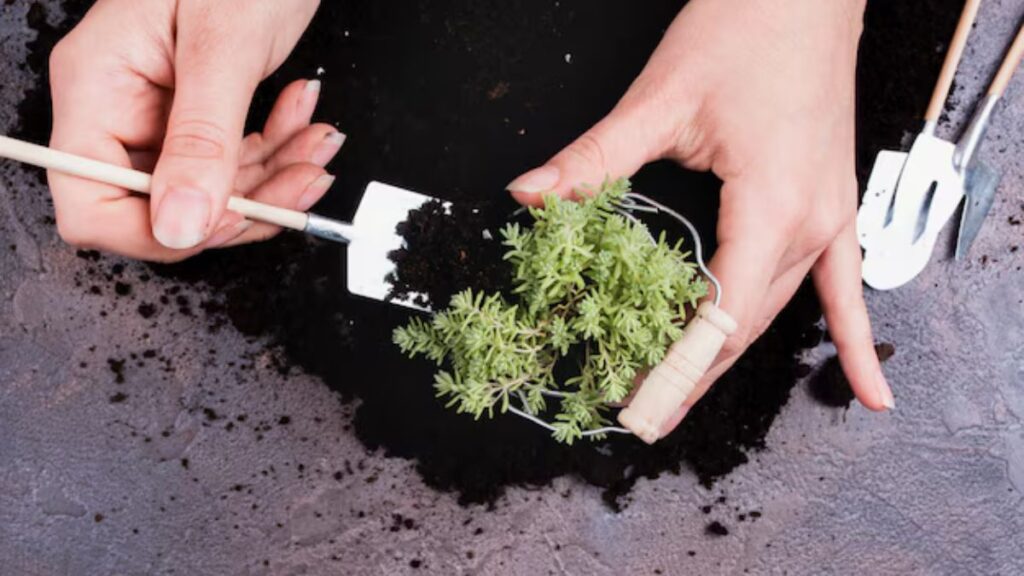Weeds are a common problem for homeowners and gardeners alike, often sprouting up in places where they’re least wanted. These hardy plants can invade your lawn, garden beds, or even your driveway, making your outdoor space look unkempt and unhealthy. Not only do they detract from the beauty of your garden, but weeds can also compete with your desired plants for essential nutrients, water, and sunlight. Fortunately, there are several effective methods to keep weeds at bay. Whether you prefer natural remedies or professional help, this guide will walk you through the best ways to eliminate and control weeds in your outdoor spaces.
1. Hiring Pest Control to Address Weeds
When it comes to dealing with persistent weeds, hiring a pest control professional can be an effective solution. These experts are skilled at identifying and treating a variety of invasive plant species that may be causing trouble in your yard. By working with pest control specialists, you can access specialized tools, knowledge, and techniques that go beyond traditional weed removal. Many pest control companies, like NAZ weed control, provide integrated pest management services that target weeds at their roots, ensuring that they don’t come back. Additionally, these professionals can help you develop a long-term strategy to prevent future weed growth.
2. Manual Removal: The Classic Approach
One of the most straightforward and eco-friendly methods of weed control is manual removal. This involves physically pulling out the weeds from the ground by hand or with the help of gardening tools like a hoe or weeder. It’s best to remove weeds when the soil is moist, making it easier to pull them out, roots and all. While this method may require more time and effort, it is a safe way to get rid of weeds without introducing harmful chemicals to your environment. For best results, remove weeds before they can seed and spread, and make sure to regularly check for new growth.
3. Mulching: Preventing Weed Growth Naturally
Mulching is a highly effective, natural way to prevent weeds from taking root in your garden or landscaping beds. A thick layer of mulch—such as wood chips, straw, or leaves—acts as a barrier, blocking sunlight from reaching weed seeds and preventing them from germinating. Additionally, mulch helps retain moisture in the soil and improves its quality over time. Applying a layer of mulch around your plants and over bare soil can significantly reduce the amount of weeding you need to do. Be sure to apply mulch to a depth of 2–3 inches for maximum effectiveness.
4. Herbicides: Chemical Solutions for Persistent Weeds
Herbicides are a common solution for tackling stubborn weeds that refuse to be removed by hand. These chemical treatments can target specific types of weeds and are especially useful for larger areas like lawns or driveways. However, it’s important to use herbicides carefully and responsibly, as they can harm beneficial plants and the environment if misused. There are two types of herbicides: selective and non-selective. Selective herbicides kill specific types of weeds while leaving other plants unharmed, while non-selective herbicides kill all plants they come into contact with. Always read and follow the manufacturer’s instructions to ensure safe and effective use.
5. Using Natural Remedies: Eco-Friendly Weed Control
For those looking for an eco-friendly alternative to chemical herbicides, several natural remedies can effectively control weeds. Common options include vinegar, salt, and boiling water. Vinegar, particularly horticultural vinegar with a higher acetic acid content, can be sprayed directly onto weeds to dehydrate and kill them. Salt is another option; when applied carefully, it can disrupt the plant’s ability to absorb water, causing it to wither and die. Boiling water is a simple and natural method for killing weeds in cracks and crevices in walkways and driveways. While these natural solutions are effective, they may require repeated applications and can potentially damage surrounding plants, so use them with caution.
6. Lawn Care and Maintenance to Prevent Weeds
Prevention is always better than cure, and maintaining a healthy lawn is one of the best ways to prevent weeds from taking hold. Regular lawn care, including mowing, fertilizing, and aerating the soil, helps keep grass thick and healthy, which in turn outcompetes weeds for nutrients and sunlight. A well-maintained lawn is also less likely to have bare patches where weeds can establish themselves. When fertilizing, be sure to use a balanced lawn fertilizer that promotes strong grass growth. Additionally, regular aeration helps improve soil health and ensures that grass roots can grow deep and strong, making it harder for weeds to thrive.
Weeds can be a frustrating and persistent problem, but with the right strategies and tools, you can keep them under control. From hiring professional pest control services to using natural remedies and regular lawn care, there are numerous ways to fight unwanted weeds and maintain a beautiful, healthy outdoor space. Whether you prefer manual removal, mulching, or chemical treatments, it’s important to choose the method that works best for your garden’s specific needs. With these effective weed control techniques, you can say goodbye to weeds and enjoy a lush, weed-free landscape all year round.







